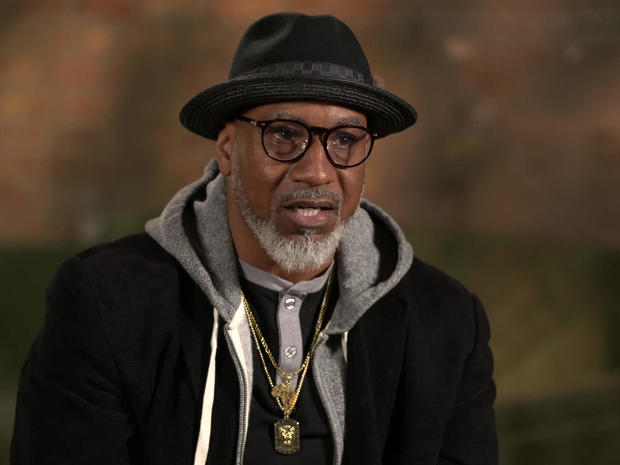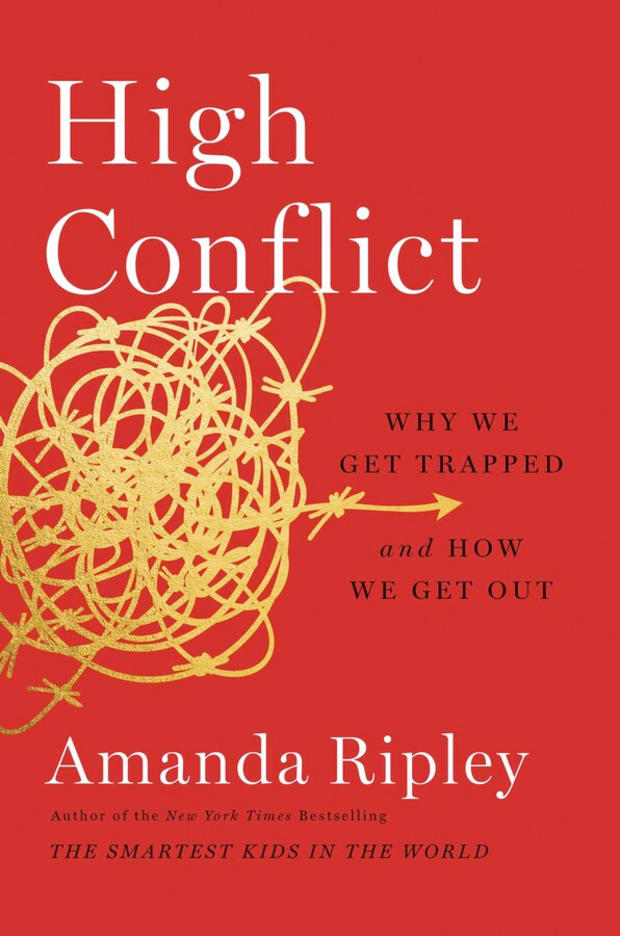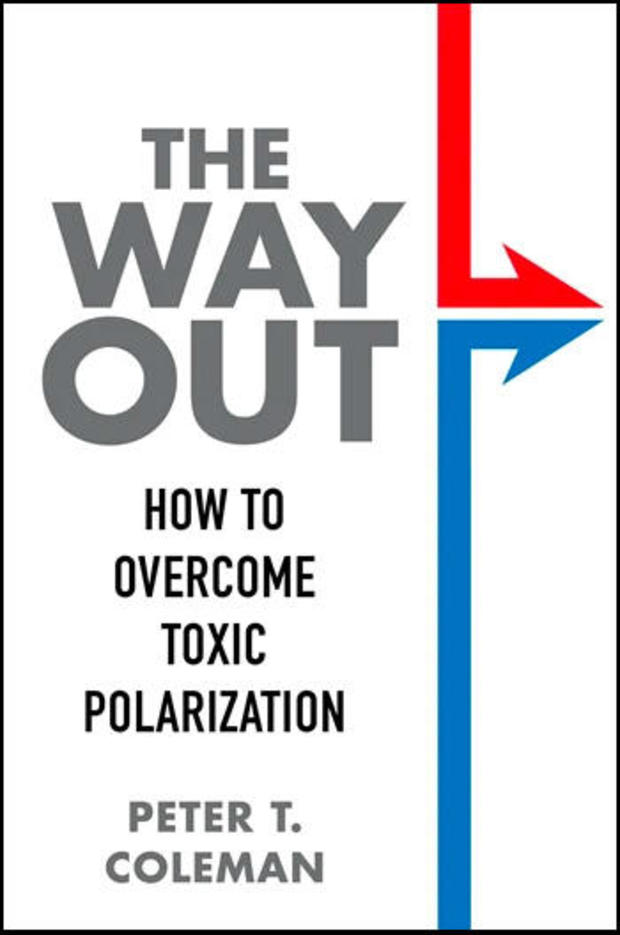Billy Moore was born and raised on the south side of Chicago, where growing up meant growing up too fast. "Chicago has a community that is heavily rooted in street gangs," he said. "It's a heavy street-gang culture."
That culture pulled him in after his father's death. Billy was just 15. "My mother, as a single parent at that time, was working to support me. It left me a lot of time just to be doin' things that, without that type of supervision, you know, led me down the wrong path, so to speak."
In November 1984, "CBS Evening News" anchor Dan Rather reported on an act of street violence "so common that it would ordinarily pass notice, except it involved an extraordinary young man."
That young man was Benji Wilson, a star high school basketball player. On November 20, 1984, Moore says Wilson bumped into him on the sidewalk.
"When I asked him was he gonna apologize or say, 'Excuse me,' in no uncertain terms he just turned around and told me, you know, he 'didn't owe me no excuse. Now what?' And at that point, I felt threatened because he wasn't backing down. And what I did at that moment I felt like I had to do to protect myself. And I pulled the gun out and shot Benji."
Benji Wilson died hours later.
Billy Moore, then 16, went to prison for 20 years.
Correspondent Susan Spencer asked, "When you came out of prison, how were you different from the 16-year-old boy who went in?"
Moore replied, "I just wanted to make sure that if I was ever given a chance to come from up under this, I wanted to be as productive as a person, as a citizen, to my community as I possibly could."
Now 53, and having lost his own son to a shooting in 2017, Moore has been trying hard to make amends. He's reconciled with Benji Wilson's brothers, and he works for Chicago CRED, a group whose mission is to stop deadly street conflict. "We're trying to identify the groups of young men who are actively involved in conflicts, and we're mediating these conflicts," he said.
"Billy Moore is a conflict survivor," said journalist Amanda Ripley. "And now he works on systematically interrupting gang violence, trying to prevent that tragic mistake that he made."
Ripley got to know Moore while working on her own four-year quest to understand human conflict – personal and political. "One of the biggest surprises for me was how similar human behavior is in all kinds of conflicts, whether it's an ugly divorce, or a labor walkout, or a civil war," she said.
Spencer asked, "So, talk to me a little bit more about how you see politics through this lens?"
"You know, when we are in two groups who are opposed to each other, we start to make huge, sweeping judgments about each other, and we make big mistakes," she replied.
Ripley writes about those mistakes in a new book, "High Conflict: Why We Get Trapped and How We Get Out" (published by Simon and Shuster (part of ViacomCBS).
Her recommendation for ending the political divide: how about another political party?
"The world doesn't neatly sort into Democrat and Republican," she said. "I mean, most people don't neatly fit into just one category. On average, countries that have more than two political parties are less politically polarized, and there's more trust."
But not all conflict is necessarily bad, right? "Absolutely right – conflict is essential," said Columbia University psychology professor Peter Coleman, who believes there is such a thing as "good" conflict. "Every creative group – The Beatles, Monty Python – all of these groups had a lot of internal conflict. And what they did with that conflict is oftentimes find a better solution. So, conflicts can result in fantastic innovation."
Coleman heads up a conflict research center with a very relatable name: the Difficult Conversations Lab – "a lab where all of us feel like we would fit right in," laughed Spencer. "How do you study conflict?"
"We wanted to try to get people, in real time, in a space together talking about issues that they had major differences on, like Trump, like gun rights, like climate change," Coleman said. "And we study the conditions under which conversations over those differences go well, or go poorly."
Things go well when he tells participants to remember one basic fact: Life is complicated.
"So, lemme give you an example: You may take a conversation over pro-life/pro-choice. And so, when they go into these conversations, they're armed for battle, right? But if you say to people, 'This is a complicated set of issues, about health and about morality and about religion and about family,' if you do that, people feel less hostile. People think about it in more nuanced ways. And they ultimately feel better about their conversations."
But clear communication is not something human beings are always good at.
"So, somebody'll say something, and they may have meant one thing, but you put a different meaning on it – and what you're gonna respond to is the meaning that you put on it, and you can end up responding either emotionally or with anger," said Dr. Jay Buckey.
An astronaut who circled the Earth 256 times in 16 days, Dr. Buckey said NASA realizes that avoiding conflict in such a tight space is a real challenge.
Spencer asked, "Have there been instances where anything has actually gone wrong because people just couldn't get along?"
"Well, I mean, the reports are in the Russian space program, there were three missions which are believed to have been terminated because of, you know, interpersonal problems," Dr. Buckey replied. "So, that's significant."
Whether in space or on the streets of Chicago, resolving even the smallest conflicts can mean the difference between life and death.
Amanda Ripley said, "One of the first things they do when they try to interrupt gang violence is to ask, 'What is the root cause of this conflict? Like, how did it begin?' And many times, no one remembers. The people who started the conflict died a long time ago."
Billy Moore said, "The prisons and graveyards are filled with young men who died, or are paying with their life, because they was caught up in a cycle of ignorance that, you get 'em a few more years to grow up and mature, they would never make those mistakes."
READ AN EXCERPT: Amanda Ripley's "High Conflict," when life becomes "us vs. them"
READ AN EXCERPT: Peter T. Coleman's "The Way Out: How to Overcome Toxic Polarization"
READ AN EXCERPT: "Until the Lion Speaks" by Billy Moore
For more info:
- Chicago CRED
- "Until the Lion Speaks" by Billy Moore (Page Publishing), in Trade Paperback format, via Amazon and Indiebound
- Billy Moore on Twitter
- "High Conflict: Why We Get Trapped and How We Get Out" by Amanda Ripley (Simon & Schuster), in Hardcover, eBook and Audio formats, available April 6 via Amazon and Indiebound
- Amanda Ripley
- "The Way Out: How to Overcome Toxic Polarization" by Peter T. Coleman (Columbia University Press), in Hardcover and eBook formats, available June 1 via Amazon and Indiebound
- Peter Coleman, director, Morton Deutsch International Center for Cooperation and Conflict Resolution, Columbia University
- Dr. Jay Buckey, Geisel School of Medicine, Dartmouth College
Story produced by Amiel Weisfogel. Editor: Carol Ross.
"conflict" - Google News
April 04, 2021 at 08:09PM
https://ift.tt/2PBKKx0
Agree to disagree: Achieving positive outcomes from conflict - CBS News
"conflict" - Google News
https://ift.tt/3bZ36xX
https://ift.tt/3aYn0I8
Bagikan Berita Ini

















0 Response to "Agree to disagree: Achieving positive outcomes from conflict - CBS News"
Post a Comment